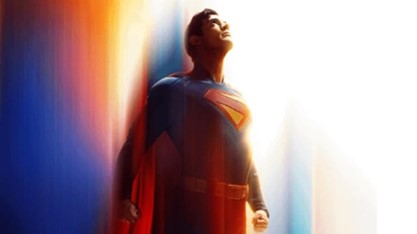By Andrew Jenck
August 2014: I’m walking out of Guardians of the Galaxy, processing how I cared more for a group of then-obscure characters than that of the previous summer’s Man of Steel. I turned to my brother and said, “I wish DC would make more movies like that.” Little did I know in eleven years that same director, James Gunn, would be tasked to reboot the DC Universe for film, starting again with Superman. Gunn took his sensibilities from his prior low-budget horror and crude comedies, reworked them into a family-friendly space romp that would become weirder yet less snarky with each installment. Unlike most other Marvel projects, Gunn didn’t mock the absurdity of the premise but embraced it with confidence. Hence, while he may have been an odd choice on paper, the guy who made people fall in love with a walking, talking tree could naturally make them believe a man can fly once again.
Clark Kent and Rocket Raccoon are opposites in nearly every character sense, but they parallel each other in how they feel like outsiders. Superman wants to be accepted as a normal human but there will always be a sense of fear around him; he could vaporize a whole city with a stare. That uneasiness is capitalized by Lex Luthor, played deliciously petty by Nicolaus Hoult, as he utilizes a Middle East-like conflict and Clark’s alien heritage to turn the public against him. Such a premise gives the Man of Steel relatability while emphasizing the immigrant allegory core to his essence. Gunn is a deliberate writer, inserting comedic bits while feeling like natural conversations, in particular a lengthy interview between Superman and Lois Lane.
Just as Gunn was inspired by pulpy, 1970s sci-fi to form the Guardians, elements from Richard Donner’s 1978 classic are fused with Gunn’s sensibilities to fit with this new world. John Williams’ theme is woven into the new score with fewer, but just as effective, needle drops as an Awesome Mix Volume (sadly, Kryptonite by 3 Doors Down isn’t among them). David Corenswet takes cues from Christopher Reeve, looking natural in the suit while nailing the hope and optimism of the character. The world presented is strange yet believable on its own terms.
One detraction is the film’s pacing, at times feeling too breezy. Not by setting up too many plot points for this cinematic universe; any of that is limited to minor subplots and the background. The film jumps right into the middle of the action, going through many ideas, some of which border at underdevelopment. There’s little screentime of Corenswet as the mild, mannered reporter; more often he’s wearing the cape. The emotional beats hit as hard as the super-punches, but it feels like there’s an introspective scene missing from the final cut.
Yet, every time I think of its issues, I’m reminded of how much optimism beams from the picture. Superman is physically challenged to jab at the naysayers but James Gunn still understands its Clark’s emotionally vulnerability that makes him compelling. At times muddled, it demonstrates his greatest strength is his humanity — the ability to inspire others and create a better tomorrow. Superman works as the start of a new DC film Universe because it doesn’t feel like the start, but rather the first look into a world desperate for hope through the eyes of a man determined to provide it.


